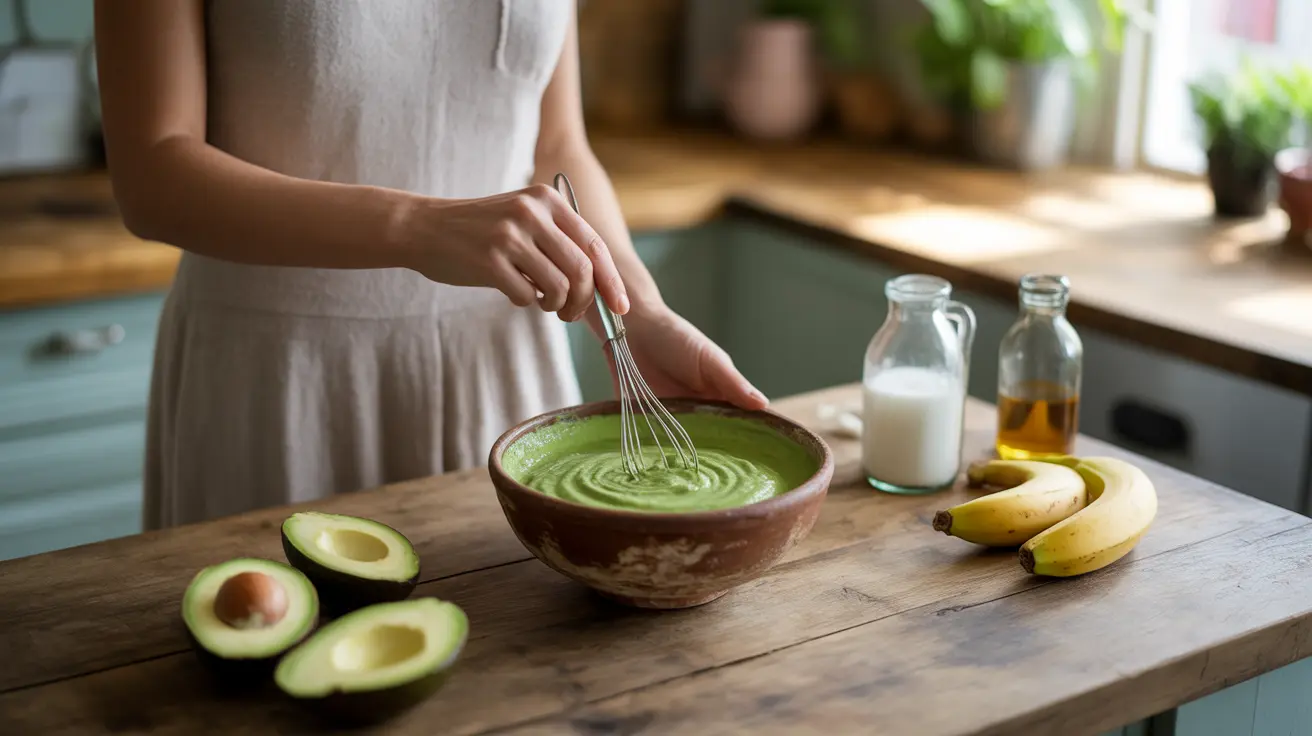Dealing with frizzy hair can be frustrating, but you don't need expensive salon treatments to tame those unruly strands. Natural home remedies can effectively manage frizzy hair while nourishing your locks from root to tip. This comprehensive guide explores proven DIY solutions that you can easily incorporate into your hair care routine.
Understanding Frizzy Hair and Its Causes
Frizzy hair occurs when the hair's outer layer (cuticle) is raised, allowing moisture to penetrate the strands, causing them to swell and become unmanageable. Common causes include humidity, heat damage, chemical treatments, and naturally dry or damaged hair structure.
Essential Natural Oils for Frizz Control
Coconut Oil Treatment
Coconut oil stands out as one of the most effective natural remedies for frizzy hair. Its molecular structure allows it to penetrate deep into the hair shaft, providing intense moisture and preventing protein loss. Apply warm coconut oil to damp hair, focusing on the mid-lengths and ends, and leave it on for 30 minutes to overnight for best results.
Argan Oil Application
Rich in vitamin E and essential fatty acids, argan oil creates a protective barrier around hair strands, preventing moisture loss and reducing frizz. Use 2-3 drops on damp or dry hair as a leave-in treatment.
Kitchen Ingredients for Hair Masks
Avocado and Banana Hair Mask
Create a nourishing mask by mashing one ripe avocado with a banana. These ingredients are rich in natural oils and potassium that help smooth and strengthen hair fibers. Apply the mixture to clean, damp hair and leave it on for 20-30 minutes before rinsing thoroughly.
Egg and Honey Treatment
Combine one egg yolk with two tablespoons of honey for a protein-rich treatment that helps repair damaged hair and control frizz. Apply this mixture once a week for optimal results.
Natural Rinses and Solutions
Apple Cider Vinegar Rinse
Mix one part apple cider vinegar with three parts water for a clarifying rinse that helps balance hair pH and smooth the cuticle. This treatment is safe for color-treated hair and can be used weekly.
Aloe Vera Application
Fresh aloe vera gel or pure aloe vera products can be applied directly to damp hair as a leave-in treatment. Its natural moisturizing properties help control frizz while promoting healthy hair growth.
Lifestyle Changes for Frizz Prevention
Adopt these habits to maintain smoother, more manageable hair:
- Use a microfiber towel or soft t-shirt to dry hair
- Avoid hot water when washing hair
- Limit heat styling and always use heat protectant
- Sleep on a silk or satin pillowcase
- Deep condition regularly
- Trim hair every 6-8 weeks to prevent split ends
Frequently Asked Questions
What are the most effective natural home remedies to reduce frizzy hair?
The most effective natural remedies include coconut oil treatments, avocado-banana masks, and apple cider vinegar rinses. These treatments work by providing deep moisture and helping to seal the hair cuticle.
How does coconut oil help with managing and moisturizing frizzy hair?
Coconut oil penetrates the hair shaft deeply, providing internal moisture and preventing protein loss. It creates a protective barrier that reduces frizz and improves overall hair health when used regularly.
Can apple cider vinegar or aloe vera be used safely on color-treated frizzy hair?
Yes, both apple cider vinegar and aloe vera are safe for color-treated hair when used properly. ACV should be diluted (1:3 ratio with water), and pure aloe vera can be used directly. These ingredients help maintain color while reducing frizz.
How often should I use homemade hair masks like avocado, banana, or egg yolk to control frizz?
Use homemade hair masks once or twice a week, depending on your hair's condition. Over-treatment can lead to product buildup, so monitor your hair's response and adjust frequency accordingly.
What lifestyle changes can help prevent frizzy hair and keep hair smooth and hydrated?
Key lifestyle changes include using a microfiber towel, avoiding hot water, protecting hair while sleeping with a silk pillowcase, regular trimming, and limiting heat styling. Consistent deep conditioning and proper hydration are also essential.




